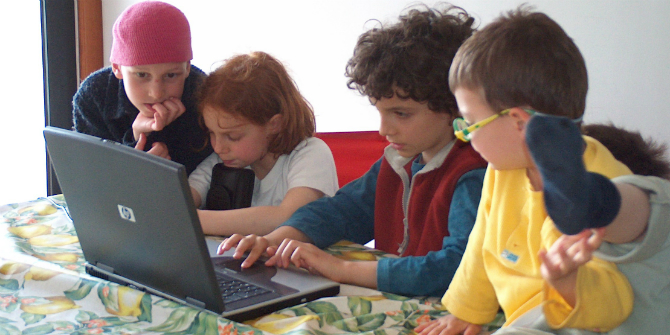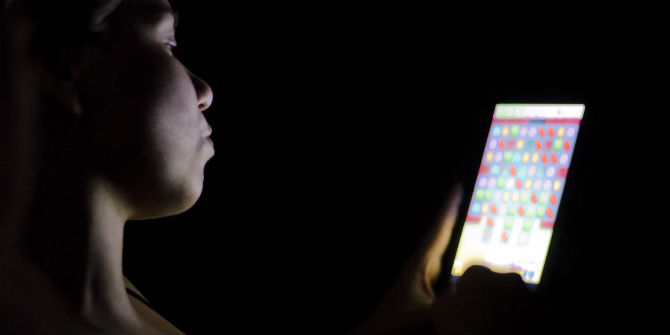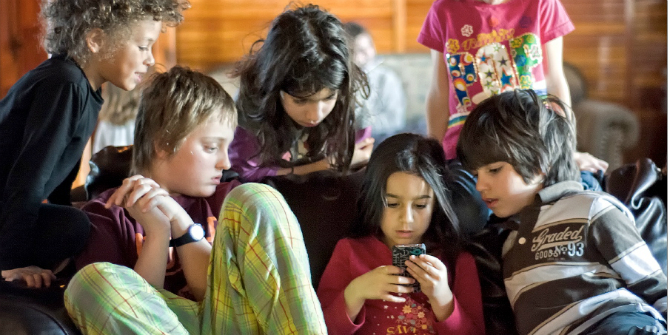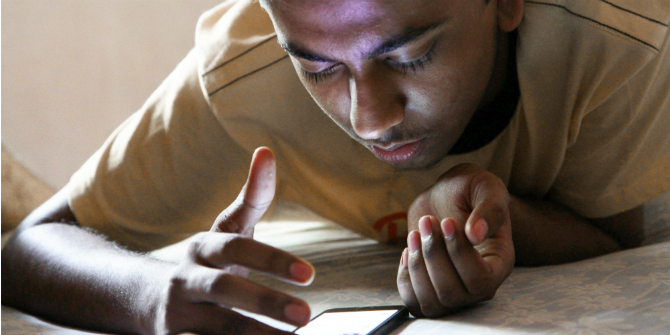Parenting for a Digital Future’s YouTube channel showcases some of our latest research findings and we have recently posted four new videos on the following topics. [Header image credit: N. Cavallotto, CC BY-NC-ND 2.0.jpg]
Parenting for a Digital Future Survey Report 1
Three short clips neatly summarise Parenting for a Digital Future’s Survey Report 1 “In the digital home, how do parents support their children and who supports them?” research findings, which were released in February. In them, lead investigator of the project Professor Sonia Livingstone discusses three key issues that arose.
“How useful is the catch-all phrase screen time in a parenting context?”
Our findings show that parents worry about how much time their children spent online, rather than asking more useful or important questions such as what their children are actually doing online, whether they are being supported in their activities online and how parents can get more involved.
“Key concerns around digital media use”
A key issue parents have around digital media in family life was found to be how to decide which online content provides the best value for children. Parents are also concerned about how to weigh up both the costs and benefits of certain digital media and they are not sure where to turn to for advice on such matters.
“The main positive findings”
The survey found that families were using digital media in many positive ways, such as watching TV and films, playing games and learning online together, as well as using social media to stay in touch with other family members. Parents are also using the internet to find online educational resources for their children.
Transmedia literacy: teens, media and collaborative culture
In this video Professor Sonia Livingstone discusses how children’s use of media can be better connected between the home and the classroom. Findings from the “Transmedia Literacy: Teens, Media and Collaborative Culture” project show how teachers can create tasks which travel across the different sites, receiving input and perspectives from both students and parents along the way.
Teachers could also offer a more student-centred approach by designing activities which allow children to draw upon their own interests or preferred media content. Teachers could identify what kinds of conversations young people are already having about media and then build activities around that.
It is recommended that media research should evaluate more clearly which ideas work well within the classroom and help children to learn. Schools could also become models of best practice themselves with regards to children and media by taking a critical approach, rewarding and valuing children’s creativity, and treating children’s data ethically.
Subscribe to our channel
Visit our YouTube channel to watch more of our videos on topics such as connected learning, children’s rights in the digital age, and digital literacy and safety.
Subscribe to our YouTube channel to receive notifications on all future updates.
You can also subscribe to the blog, which explores the task of parenting in the digital age and is for anyone involved in parenting as well as policy-makers trying to shape the digital future and social scientists keen to track key trends.





